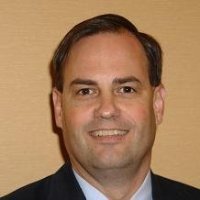Langham: Ixnay on the Ausationcay?
Tuesday, July 28, 2020 | 0
The Florida 1st District Court recently affirmed the trial judge in Premier Community Healthcare Group v. Rivera. The court's conclusions are not specified, as the majority decision is "per curiam affirmed." However, Judge Brad Thomas wrote a dissenting opinion that is worthy of consideration.

Judge David Langham
The worker, Ms. Rivera, tried to prevent a patient from falling and was injured in the process. She was provided medical care, but her specific claims for "cervical injections and physical therapy" were denied. There was evidence that she had suffered "a prior motor vehicle accident and previous neck symptoms." However, those were not disclosed to the authorized treating orthopedic surgeon, Dr. Schulak.
Both Schulak and an independent medical examiner testified that "the workplace injury is not the major contributing cause of claimant’s current need for medical treatment." However, the trial judge concluded that Rivera suffered a workplace injury and that the accident was the "major contributing cause (MCC) of the need for requested medical care."
The employer/carrier sought review.
Judge Thomas concluded that "the record lacks competent substantial evidence in support of the MCC determination." He noted that another physician's records were relied upon by the trial judge. The physician, Dr. Tolli, was also an authorized physician.
The dissent noted that in Dr. Tolli's records the doctor wrote that "the requested treatment for the cervical spine was on hold awaiting authorization from the workers’ compensation carrier" and that "Dr. Tolli did not relate the need for medical care to any other cause."
In combination with the "claimant's credible testimony," the trial judge accepted Dr. Tolli's "opinions ... greater weight" than the opinions expressed by Dr. Schulak and the IME physician. Judge Thomas noted that the Florida workers' compensation law requires proof of the MCC, a standard that is defined as “the cause which is more than 50% responsible for the injury as compared to all other causes combined for which treatment or benefits are sought.” He also noted that proof must be "by medical evidence only."
Judge Thomas references various medical records in regard to Dr. Tolli. However, there is no mention of Dr. Tolli's testimony. Generally, it is possible for an expert's records to be admitted without testimony, as medical records of authorized providers may be accepted as evidence in Florida without testimony (which is consistent with the trial order in the case).
Judge Thomas notes that Dr. Tolli "never directly addresses the cause of the need for treatment." The trial order acknowledges the employer's argument that medical testimony should be more persuasive than mere records, and essentially dismisses that argument.
The dissent concludes that, in those reports, "there is no language suggesting that work-related injury is the MCC of the need for the requested medical benefits." In particular, Judge Thomas noted that Dr. Tolli included DWC-25 forms in his other records, but the section of that form that inquires about MCC "was conspicuously left blank on every DWC-25 completed by Dr. Tolli or his staff."
Notably, the trial order identifies and warns of the potential for records alone to be insufficient: "Obviously, the party relying on medical reports runs the risk that these reports are insufficient to establish the necessary medical causation based on the written word alone."
Judge Thomas concedes that "the use of specific 'magic words' is not required to prove MCC," as the trial judge also reminded. But he concludes that proof of MCC, nonetheless, required proof of the definition in the statute. The trial order, instead, relies upon the notes of Dr. Tolli, and by implication the absence therein of any other potential causes for the need for treatment ("this physician does not relate the need for the medical care recommended to any other cause").
There is no majority opinion. The reader is thus left with questions regarding the volume of proof required to prove a case. Clearly, the injured worker is generally the one with the burden of proof. One lesson here is that it would perhaps be advisable for physicians to complete all of the sections of each DWC-25. Those forms are required and should be complete.
It is possible that the dissent could view the case differently had the DWC-25 forms addressed the MCC question. It is also possible that, had those sections been completed, the majority view might have changed, or even the trial judge's.
It is difficult to conjecture why the DWC-25 is so rarely completed, but many seem to be incomplete. Incomplete records submitted into evidence without supporting or explanatory testimony are a risk. Advocates will, therefore, likely study the dissent in Rivera for some time.
David Langham is deputy chief judge of the Florida Office of Judges of Compensation Claims. This column is reprinted, with his permission, from his Florida Workers' Comp Adjudication blog.







Comments